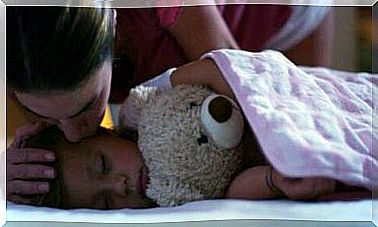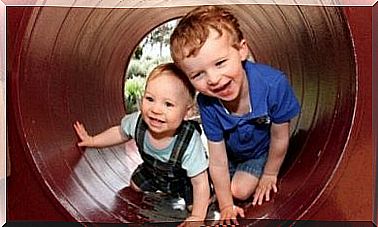How Many Hours Should A Child Sleep Based On Their Age? – Being Parents

It is very common for children to suffer from sleep disturbances. And even more so when there is no routine to help them sleep. We need to organize ourselves and know exactly how many hours a child should sleep based on their age. In this way, we can avoid any problem that they might have in the future due to the lack of rest.
How many hours should a child sleep?
Getting enough sleep will allow children to develop well both physically and mentally. According to the United States Academy of Pediatrics recommendations in the Journal of Clinical Sleep Medicine, here are the hours a child should sleep based on their age:
From 4 months to 1 year
A newborn baby should normally sleep between 4 p.m. and 5 p.m. During the night, he sleeps 9 hours. Then, the overtime is distributed throughout the day.
As the child grows, these hours decrease. By the end of his first year, he should sleep 11 hours at night and 3 hours during the day.
1 to 3 years old
When the child is between 1 and 2 years old, he should rest 10 to 14 hours a day. When he is between 2 and 3 years old, he begins to give up the nap. What is fundamental in these early years is that he sleeps at least 10 hours a day.
From 4 to 5 years old
At this point, he begins to sleep between 10 and 12 hours at night. From this point on, they also don’t need a nap, unless they are very tired. In this case, it is not bad to rest a little after eating. The child must get enough sleep to have a good academic performance.
From 6 years old
As the child grows, the hours of sleep decrease. Between 6 and 8 years old, they will have to sleep between 11 and 12 hours. And between 10 and 12 years old, they will need at least 10 hours of sleep.
In the case of a teenager over 13 years old, the necessary rest time is between 8 and 10 hours.

The benefits of getting good rest
Sleep is absolutely necessary for children and adolescents. Sleeping the hours indicated will allow them to have the energy necessary to accomplish their daily tasks and perform better at school. Here are some of the benefits of getting good rest:
- Improved attention.
- Emotional regulation.
- Better behavior.
- Improve your quality of life.
- Greater learning capacity.
The consequences of not sleeping the necessary hours
Just as rest for the necessary hours has many benefits, failure to do so can have really negative effects on children. The availability of energy and their ability to learn can be seriously affected. Here are some of the consequences of not getting enough sleep:
- Children who sleep fewer hours than they should often do poorly in school.
- In addition, they generally have much slower linguistic development.
- By sleeping less, some of the REM sleep is lost. This phase is fundamental for the child to record in his memory what he has learned during the day and for his brain to recover.
- Lack of sleep can also affect a child’s immune system. This could cause them to be more prone to having colds, the flu, and other infectious processes.
- Children who get only 5 hours of sleep double the risk of being an obese adult.

Tips to help the child sleep
As parents, it is very important to know how many hours a child needs to sleep based on their age. And if they have difficulty falling asleep or if they are not used to sleeping for the right hours, they should be helped to develop a habit.
With the following actions, you can start helping them get as much rest as their body needs:
- It is important that the child sleep in a comfortable bed. A low light environment and a comfortable temperature are necessary.
- It is best not to have tours, games, or loud music that could disturb their sleep.
- Avoid drinking caffeinated drinks after noon.
- Establish a routine before bed.
- Wake up the child at the same time. Also, encourage him to sleep without the parents needing to be present.
Now we know how much a child should sleep based on their age. It is therefore important to take steps to help him fall asleep properly. There are many consequences of not getting enough sleep. But with the habits mentioned above, we can avoid poor performance in the present and big problems in the future.









